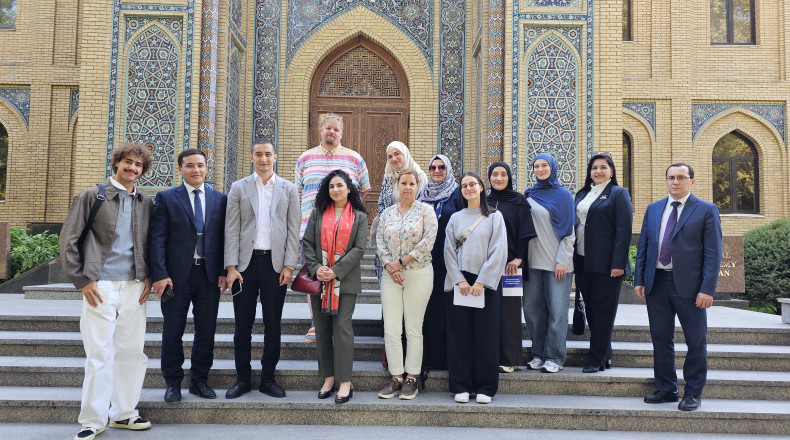
Cooperation with Top 300 universities at a new level
From October 6 to 11, 2025, a series of scientific and cultural events dedicated to the development of religious studies and Islamic studies was held in cooperation between the International Islamic Academy of Uzbekistan and Friedrich-Alexander University Erlangen-Nürnberg (Germany). The series of events began on October 6 with the international scientific and practical seminar on the topic “Modern Methodological Approaches in Religious Studies”.
The seminar, held at the International Islamic Academy of Uzbekistan, focused on methodological approaches in the field of religious studies and ways to improve the effectiveness of academic research. The event also aimed to strengthen international cooperation and promote the exchange of scholarly experience in this field.
The seminar brought together leading scholars, professors, and young researchers from Uzbekistan and Germany. Its main goal was to discuss traditional and modern methodological approaches in contemporary religious studies, to share scientific experience, and to further enhance international academic cooperation.
The seminar was moderated by Associate Professor Jahongir Tohirov, Dean of the Faculty of Islamic Studies.
In his opening remarks, Associate Professor Irgash Daminov, Vice-Rector of the International Islamic Academy of Uzbekistan, highlighted the importance of this event for expanding international scientific collaboration and advancing the field of religious studies.
During the seminar, the following presentations were delivered:
Prof. Ilhom Bekmirzaev (IIAU) – “Development and Prospects of Uzbek and German Islamic Studies.”
Prof. Mohammed Nekroumi (FAU) – “Methodological Issues in the Study of Islamic Theology.”
Assoc. Prof. Nigora Hakimova – “Epistemological Issues in Qaffal ash-Shashi’s Work ‘Mahosin.’”
Assoc. Prof. Mahfuza Alimova – “Trends in the Development of Religious Studies in Uzbekistan.”
As part of the seminar, joint binary lectures were held with German specialists for master’s students in Comparative Religion and bachelor’s students in Religious Studies on the subjects:
Methodology of Teaching Religious Studies
Science and Religion
Comparative Study of Religious Sources
At the end of the presentations, a scientific discussion took place. Participants exchanged views on the relevance of modern methodological approaches, the specific features of Eastern and Western academic schools, the expansion of opportunities for young researchers, and the development of international cooperation.
The seminar concluded with several agreements to deepen academic collaboration, including:
implementation of joint scientific projects,
co-authorship of articles in international academic journals,
organization of joint seminars for doctoral and master’s students,
and expansion of academic exchange programs.
Additionally, the program included visits to cultural and historical landmarks in Tashkent for international guests.
Participants emphasized that such scientific-practical events play an essential role not only in advancing the field of religious studies but also in strengthening intercultural dialogue and mutual understanding within the academic community.
 O`Z
O`Z
 РУ
РУ
 EN
EN
 العربية
العربية


New comment